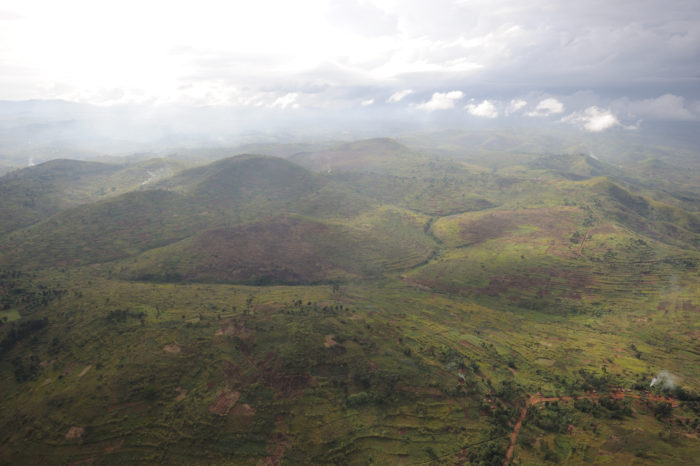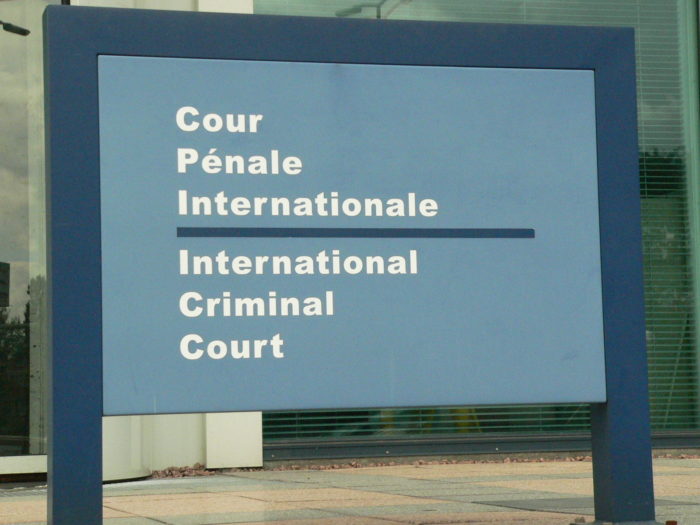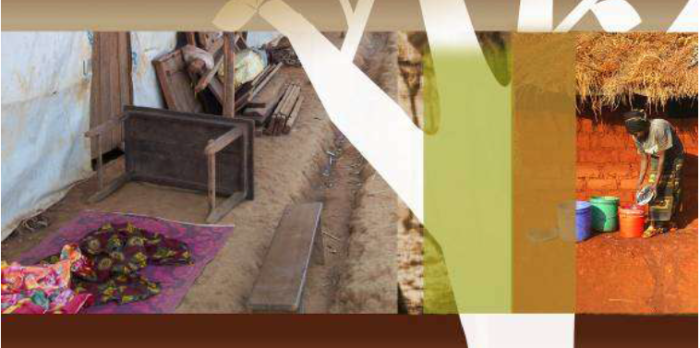On December 18, 2012, the ICC will announce the second verdict in its history against Mathieu Ngudjolo Chui. In contrast to the fear and anticipation which preceded the March verdict against Thomas Lubanga, this decision is being awaited quietly by people in the affected region of eastern DRC. Many opinion leaders are hesitant to…
The residents of Tanzania’s Mtabila refugee camp are currently being returned to Burundi against their will. This population, most of whom fled to Tanzania in the 1990s, has been facing increasing pressure to return to Burundi for several years in something of a battle of the wills: on the one side has been the government…
Displacement is often part of a cyclical process of conflict and displacement. Preventing displacement, therefore, is not only about preventing new displacement but about ensuring that people do not get re-displaced. Read the full article.
On July 10, 2012, the International Criminal Court (ICC) pronounced its first sentence – 14 years imprisonment – for Democratic Republic of Congo (DRC) militia leader Thomas Lubanga. On the ground in the DRC speculation is now turning to the next element of the proceedings – reparations. Chambers have indicated that they will pronounce…
The announcement on July 10 of the first sentence handed down by the International Criminal Court (ICC) in the case of Thomas Lubanga has sparked diverse responses in his home province of Ituri in the Democratic Republic of Congo (DRC). Although there are some that approve of the sentence, the decision has also been attacked…
In “Where Law Meets Reality Forging African Transitional Justice” Edited by Moses Chrispus Okello, Chris Dolan, Undine Whande, Nokukhanya Mncwabe, Levis Onegi, Stephen Oola Available for puchase here.
Transitional justice mechanisms, including trials, truth commissions and reparations are often employed in the same countries which have also experienced mass displacement. The connection is clear: transitional justice mechanisms are designed to address the consequences of the same large scale violations of human rights and violent conflict that are the cause of mass displacement. Yet,…
On March 14, 2012, the International Criminal Court (ICC) issued the first verdict since it began operations 10 years ago in the case of Thomas Lubanga, a former militia leader from the region of Ituri in eastern Democratic Republic of Congo (DRC). Lubanga, whose forces had sought regional autonomy for Ituri, was convicted of conscripting…
The run up to the International Criminal Court (ICC) verdict in Ituri was marked by fear and anticipation, highlighted by rumors that the judgment would be favorable to Thomas Lubanga. Since the announcement of the verdict last week, there have been no major security incidents, but the mood remains tense and a serious national debate…
The run up to the International Criminal Court (ICC) verdict in Ituri was marked by fear and anticipation, highlighted by rumors that the judgment would be favorable to Thomas Lubanga. Since the announcement of the verdict last week, there have been no major security incidents, but the mood remains tense and a serious national debate…
The International Criminal Court (ICC) will announce its first verdict in the case of Thomas Lubanga, former leader of the Congolese rebel group, the Union des Patriots Congolais (UPC) tomorrow. In eastern DRC’s Ituri region, where Lubanga led the UPC and is accused of committing the crimes for which he is on trial, all eyes…
As the trial of Jean-Pierre Bemba started in The Hague on November 22, Kinshasa was abuzz with the news. Newspapers carried the story as front page news. “Bemba Giving Up His Ex” cried the full page cover of Le Soft, while La Prosperite read “Bemba Faces the Judges.” Congolese television broadcast the opening statements in…
Published Criminal Law Reform and Transitional Justice Human Rights Perspectives for Sudan, Ashgate, November 2011.
4 October 2011) On 25 May 2011, a Tripartite Commission comprised of the governments of Tanzania and Burundi and the UNHCR met to discuss the future of approximately 38,000 refugees in Mtabila camp in Tanzania. The talks ended with a decision to close the camp on 31 December 2011. The government of Tanzania has announced…
On August 26, 2011, the International Criminal Court (ICC) Appeals Chamber ruled that three witnesses, who had been called to The Hague to testify for the defense in the Katanga case, could, in principle, be returned to the Democratic Republic of Congo (DRC). Prior to their transfer to The Hague, the three former militia leaders…
Rumor and speculation are rife in eastern Democratic Republic of Congo’s (DRC) North Kivu province regarding the anticipated return of Congolese refugees from Rwanda. Sparked by the signing of a tripartite agreement between the governments of the DRC, Rwanda and UNHCR in February 2010, feelings of hostility towards the idea of their “return” are widespread….
As Congolese head to the polls on November 28, 2011 to elect a new president, the front-running opposition candidate in the previous election, Jean-Pierre Bemba, sits in a jail cell in Schevingen in the custody of the International Criminal Court (ICC). Bemba has not, however, taken his incarceration to mean that he should be sidelined…
In Ituri, victims of atrocities committed in the context of the 2002-2003 violence, which claimed an estimated 50,000 lives, and the civil society organisations that represent them have been calling out for a full accounting for crimes committed, emphasizing their right to both understand the particular individual and institutional drivers of the conflict and for…
At the International Criminal Court, Germain Katanga and Mathieu Ngudjolo Chui are charged with the particularly bloody joint attack on the village of Bogoro in February 2003. The facts of this attack are particularly disturbing: at least 200 civilians are estimated to have been killed, civilian women were raped and held as sexual slaves, and…
IRRI’s Senior Researcher Lucy Hovil has written UNHCR’s latest working paper on the process of repatriation of Southern Sudanese refugees in Uganda. While the official repatriation process continues, the paper demonstrates that refugees are creating their own durable solutions through a combination of economic and social integration and ongoing movement in and out of Sudan….


